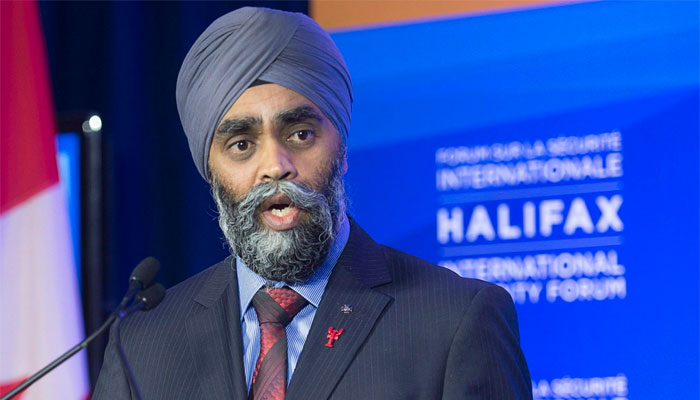At a security forum in the Atlantic port city of Halifax, Defense Minister Harjit Sajjan said by welcoming Syrian refugees, Ottawa was also striking at IS.
AFP/Ottawa
Canada plans to fly in 900 Syrian refugees a day as of next month, according to media reports, as the defense minister said showing compassion for these people sends a message to Islamic State extremists.
Canadian officials said details of a plan to take in 25,000 Syrian refugees by year's end would be announced Tuesday.
The Canadian media reports come amid fears that IS jihadists could slip into the country posing as refugees, in the wake of last week's attacks in Paris that killed at least 130 people.
Citing a leaked document, local media said the government was planning to fly in 900 Syrian refugees daily from Jordan to Montreal and Toronto, starting December 1.
From there, they would be transported to two military bases in Ontario and Quebec, where they would be temporarily housed, according to the reports. They pegged the cost of the ongoing operation at Can$1.2 billion over six years.
The cost and other details will be revealed on Tuesday, Immigration Minister John McCallum told reporters in Ottawa.
Health Minister Jane Philpott, however, said the leaked information was "outdated and not expected to be accurate."
At a security forum in the Atlantic port city of Halifax, Defense Minister Harjit Sajjan said by welcoming Syrian refugees, Ottawa was also striking at IS.
"This crisis is not just about a humanitarian project," he said in his opening remarks to military commanders and defense ministers from around the world.
"This also sends a great message to ISIS that you might create this environment for us, but we will not let you take advantage of this," he said, using an alternate acronym for the IS group.
"By doing our part for this, we are actually hitting ISIS in a different way as well."
Sajjan also sought to allay security concerns raised since the Paris attacks, saying Canada is looking to bring over the most vulnerable and families with skills that could ultimately benefit Canada, and that they pose no threat to national security.
"They're not fleeing poverty; they're fleeing war," he said. "People who are settling are going to be contributing to our economy."

